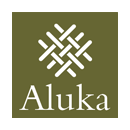Aluka
| Aluka (library) | |
|---|---|
 | |
| Web address | http://www.aluka.org |
| Commercial? | not-for-profit |
Type of site | Digital library |
| Owner | Aluka |
| Created by | Aluka |
Aluka is an online digital library focusing on materials about Africa. Aluka's mission is to connect scholars from around the world by building a common platform that allows online collaboration and knowledge sharing. Aluka's audience is higher education and research communities worldwide.
Aluka has been an initiative of Ithaka Harbors, which is a non profit organization that has a mission of incubating promising new projects that support the use of technology for the benefit of higher education. An assumption of the incubation process is that successful projects will eventually become independent or join larger, existing organizations serving the academic community. In June 2008, the Ithaka and JSTOR Trustees approved a recommendation that the Aluka initiative be integrated into JSTOR.
Founded in 2003, Aluka was an initiative of Ithaka, a non-profit organization based in New York City and Princeton, New Jersey. The initial funding was provided by the Mellon Foundation, the William and Flora Hewlett Foundation, and the Stavros S. Niarchos Foundation.
The first release of Aluka took place in early February 2007 with preview access to JSTOR subscribers. In Africa, Aluka is free to all academic and other not-for-profit institutions.[1]
The name 'Aluka' is derived from a Zulu word meaning 'to weave'.
Content
Initial focus of Aluka digital library is in three major areas:
- African Plants: Collection of African plants specimens and related materials contributed by the African Plants Initiative.
- Cultural Heritage: Collection of images, documents and 3D models documenting African heritage sites, including Timbuktu, Djenne, Lalibela, Kilwa Kisiwani, Lamu, and Elmina. This content area also includes a large collection of African Rock Art from many African nations.
- Struggles for Freedom: Documents, images and other materials documenting the liberation struggles in Southern Africa, including those from Angola, Botswana, Mozambique, Namibia, South Africa and Zimbabwe.
Aluka seeks to attract other collections of scholarly interest from institutions and individuals worldwide. By bringing materials together, Aluka creates new opportunities for research and collaboration. Documents and materials that were previously hard or impossible to access are now available for researchers around the world.
See also
- List of academic databases and search engines
- Digital preservation
References
- ↑ Aluka and JSTOR Unite. July 2008. (press release)
Further reading
- Mellon Foundation
- J-STOR News
- Project briefing at the meeting of the Coalition for Networked Information
- Meeting of Africana Librarians Council at the Library of Congress
- Introduction to Aluka from the Association of Research Libraries
- Isaacman, A., Lalu, P., Nygren, T. 2005. Digitization, History, and the Making of a Postcolonial Archive of Southern African Liberation Struggles: The Aluka Project. in Africa Today v.52 no.2.
- Can Technology Save the Developing World: Supplying Content in the Chronicle of Higher Education July 21, 2006.
- Building a Digital Library of Scholarly Resources from the Developing World: An Introduction to Aluka Rajan, R., Ruther, H. in African Arts v.40 issue 2.
- Documenting African Sites: The Aluka Project Rajan, R., Ruther, H. in Journal of the Society of Architectural Historians v.66 number 4.
- Project Digitizes Works from the Golden Age of Timbuktu in The New York Times May 20, 2008.
- The Rush to Save Timbuktu's Crumbling Manuscripts in the Der Spiegel August 1, 2008.
- 2008 Issue of JSTOR News focused on Aluka